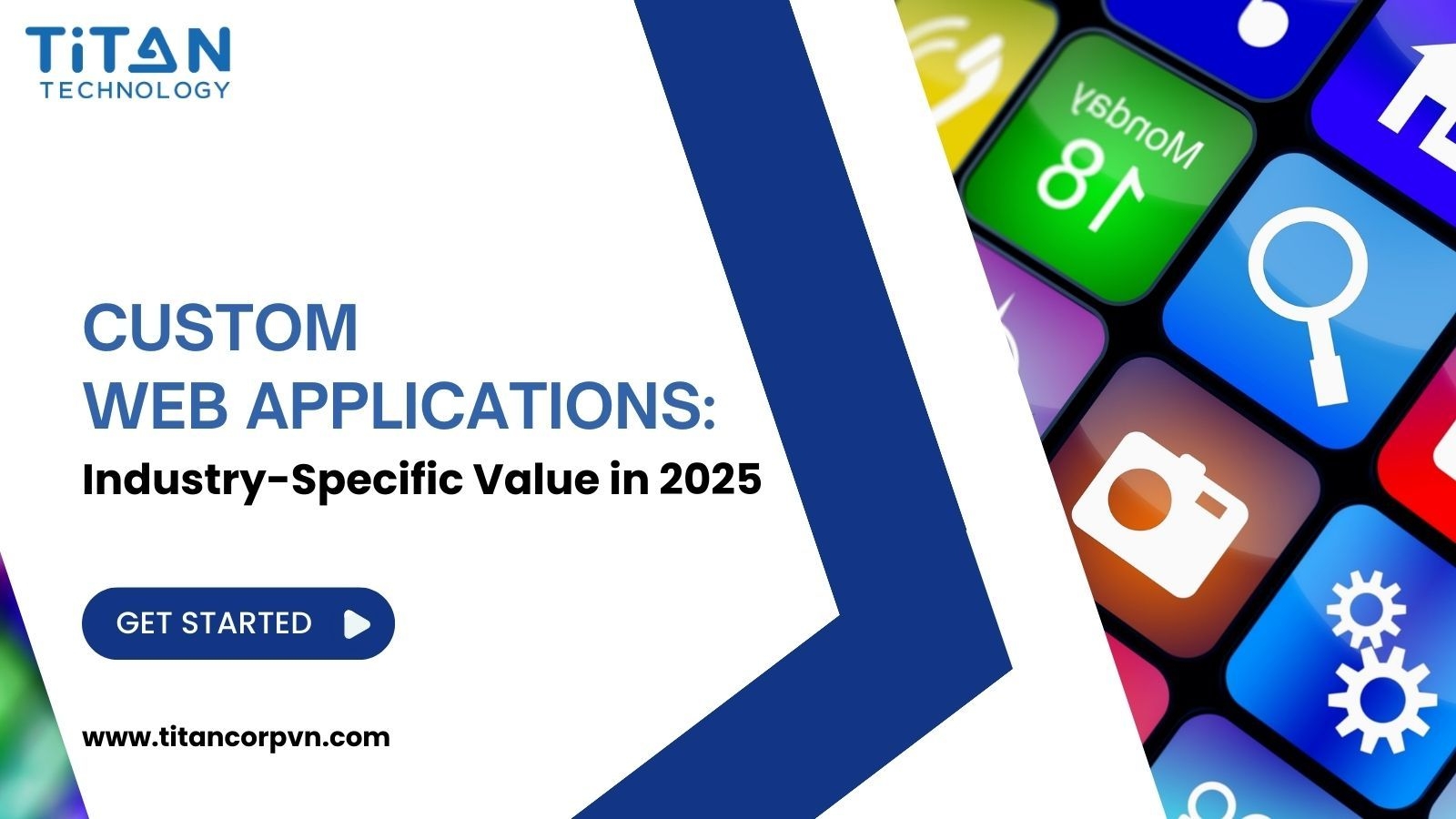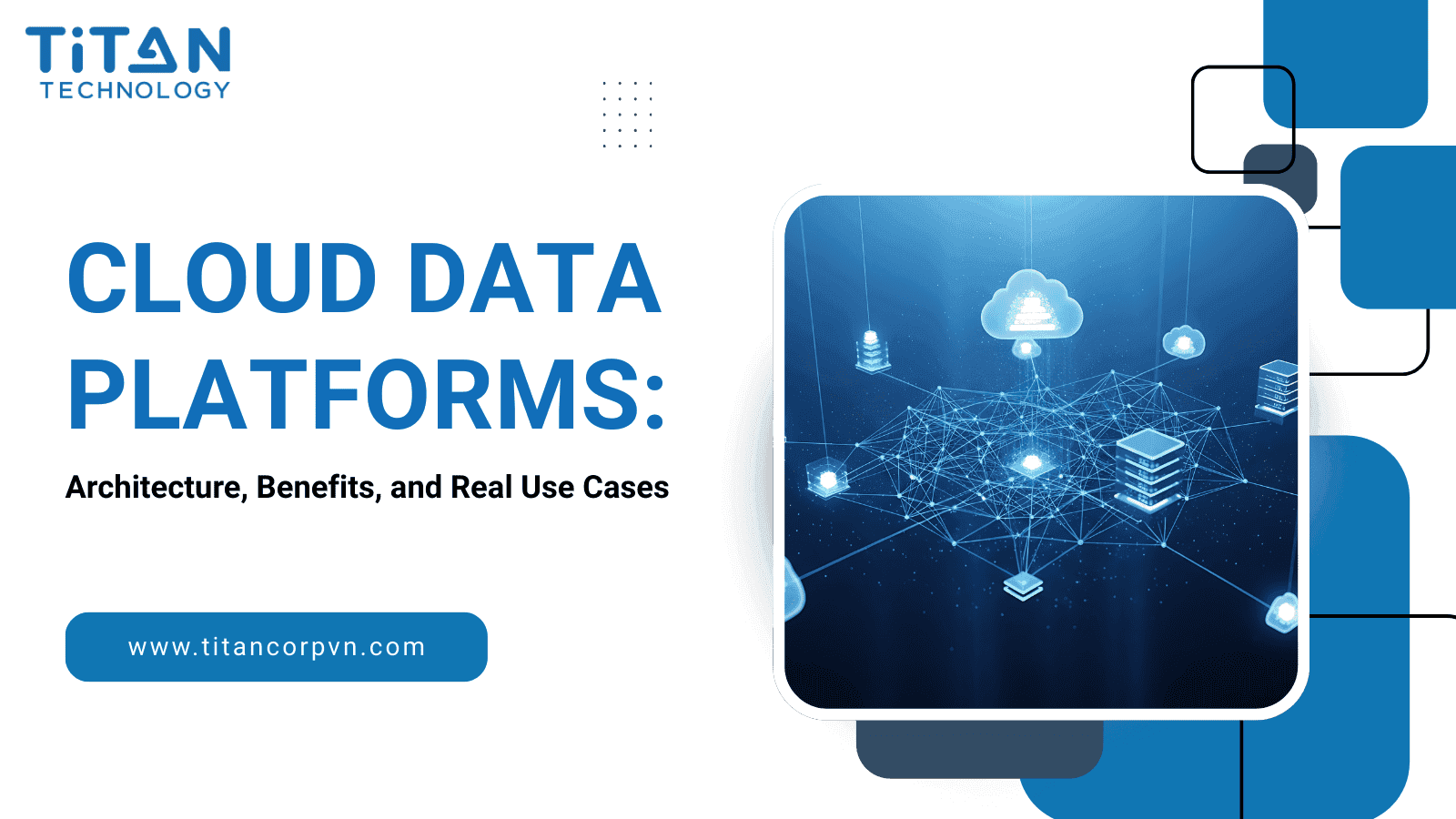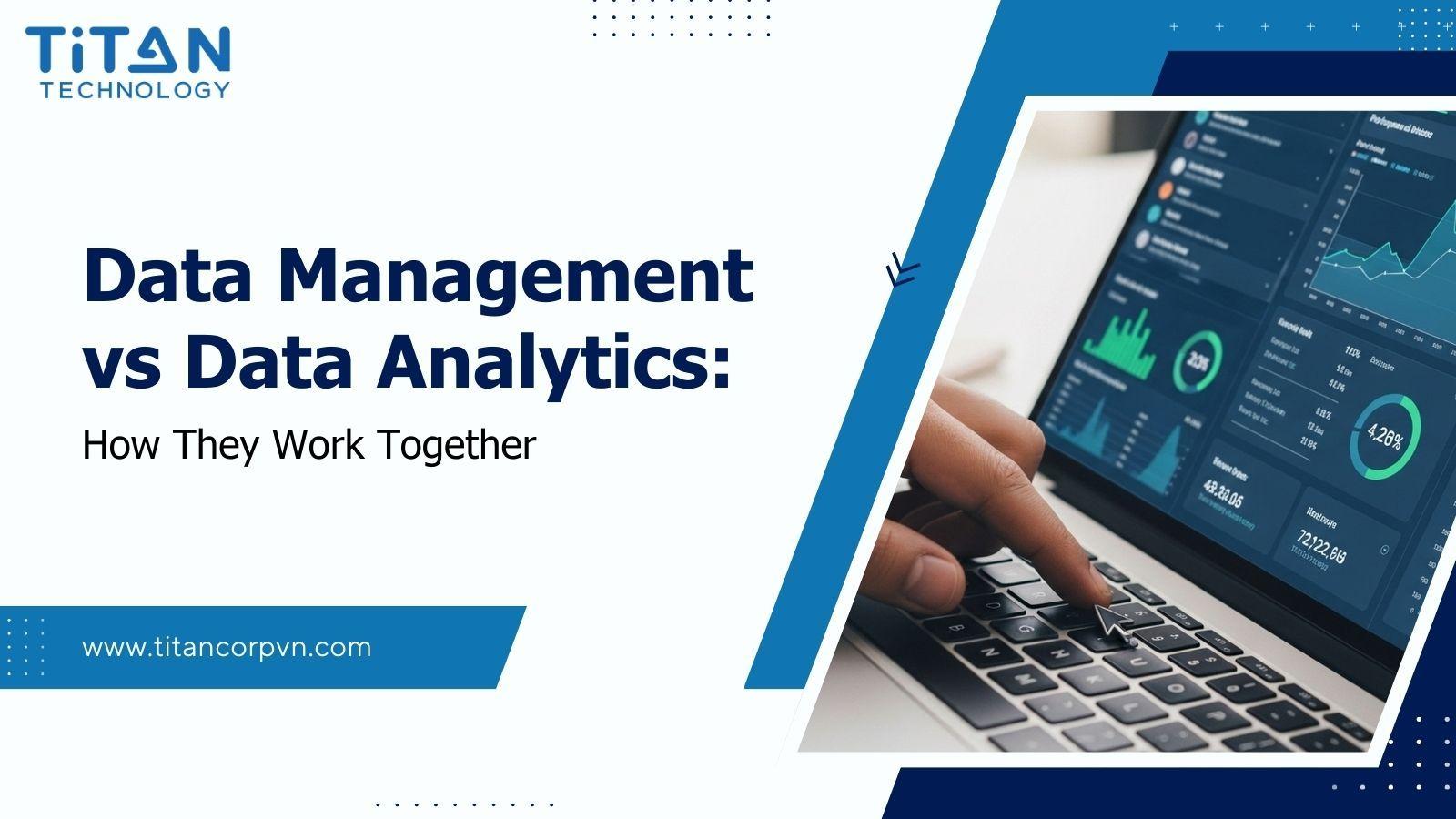Summary for Decision-Makers
By 2025, industry leaders are learning a tough lesson: 70% of digital transformation projects fail to meet their goals (Digital Adoption, 2024). A major reason is the overreliance on generic, off-the-shelf software that creates compliance gaps, security risks, and poor integration.
Custom web applications address these issues by incorporating industry-specific compliance standards (such as HIPAA, PCI DSS, and GDPR), ensuring seamless system integration, and delivering scalable, future-proof performance. From finance to healthcare, logistics, e-commerce, and education, tailored solutions are becoming the foundation for resilience, efficiency, and long-term growth.
This article examines how custom web apps deliver measurable value across various industries, featuring real-world success stories that underscore why organizations that choose expert development partners gain more than just software — they gain a sustainable digital advantage.

It’s a sobering fact: 70% of digital transformation projects fail to hit their targets (Digital Adoption, 2024).
Many business leaders have seen this firsthand. They rely on generic, one-size-fits-all applications that promise convenience but fall short in practice. While these tools may work for a short time. But they often create compliance risks, security gaps, and integration issues. In industries such as finance, healthcare, or logistics, these challenges are not small oversights. They are mission-critical risks that can disrupt operations and erode trust.
This is where custom web applications create real impact. Built around specific workflows and industry demands, they deliver the scalability, security, and efficiency that off-the-shelf tools cannot provide.
In this article, we’ll explore how custom web applications are transforming key sectors, including Finance, Healthcare, Retail, Logistics, and Education, with measurable benefits and real-world success stories. You’ll also see why companies partnering with experts like Titan Technology Corporation gain not just software but a sustainable digital foundation for long-term growth.
What Makes Custom Web Applications Different?
At their core, custom web applications are built from the ground up to address your unique challenges. This is a stark contrast to off-the-shelf software. It offers a broad set of features designed to serve a wide range of users.
Custom web apps solve critical challenges that generic solutions simply can't handle. They can be designed with industry-specific compliance requirements (HIPAA, PCI DSS, GDPR) baked in from the start, mitigating the risk of costly violations. They also offer seamless integration with your existing legacy systems and software, like ERP or CRM platforms, eliminating data silos and creating a single source of truth. Most importantly, a custom solution is scalable and future-proof, designed to evolve alongside your business. While off-the-shelf software might require expensive licenses or rigid subscription models that don't scale efficiently. A custom web app provides a long-term ROI and the adaptability to pivot as your market changes.
For a deeper look into the technical aspects of web development, explore our comprehensive guide: The Complete Guide to Web Application Development in 2025.
Web Applications for Healthcare
Few industries face stricter compliance and data security demands than healthcare. Patient records, insurance claims, and telehealth platforms all involve sensitive data that must remain protected under frameworks like HIPAA in the United States or GDPR in Europe. Generic software often falls short, creating vulnerabilities that can lead to costly breaches and legal penalties.
Custom web applications solve this by embedding compliance and security at the core of the system. Features like encrypted data storage, role-based access controls, and automated audit logs make compliance easier. They also help healthcare providers maintain efficiency.
Beyond compliance, tailored solutions also improve patient engagement. Custom portals allow patients to securely access records, schedule appointments, and receive reminders. For providers, integrated dashboards bring clinical data, billing systems, and communication tools together in one place. This reduces administrative burden and frees staff to focus on care delivery.
Recent data underscores the urgency. According to Chief Healthcare Executive, the average cost of a healthcare data breach in 2025 is $7.42 million, the highest across all industries. Moreover, healthcare organizations take an average of 279 days to identify and contain a breach, more than five weeks longer than the global cross-industry average (HIPAA Journal). These figures highlight why compliance-first custom solutions are no longer optional but essential.
Custom Web Applications for Finance
The finance sector operates under extreme regulatory pressure. Challenges such as fraud, money laundering, transaction monitoring, and data protection demand proactive, not reactive, risk management. Off-the-shelf tools rarely keep up with country-specific compliance standards, multi-currency requirements, and high-speed transactional demands.
Custom web applications for finance address these priorities from the start. They can be designed with automated workflows for KYC/AML verification, real-time fraud detection, secure transaction logging, and detailed regulatory reporting dashboards. Seamless integration with existing systems such as core banking, loan management, or treasury platforms ensures data consistency and transparency. These solutions also provide the scalability needed to handle large surges in transaction volume without performance loss.
Recent industry data highlights the rising stakes. The average financial services firm now faces about $5.9 million per data breach, up 2.3% year-on-year, according to VikingCloud. More than 51% of financial services companies are using AI and machine learning in 2025 to detect fraud and strengthen cybersecurity, reports CoinLaw. Firms that fall short on compliance also face severe consequences. Financial institutions in Europe, for instance, were fined approximately $1.6 billion for GDPR violations in 2025, according to CoinLaw.
These figures make it clear that finance organizations cannot treat compliance and risk management as afterthoughts. Custom web apps embed these priorities at the core of operations. They help firms stay resilient, meet regulatory demands, and protect their reputation.
E-Commerce Web Application Development

E-commerce has become one of the fastest-growing sectors worldwide, but competition is unforgiving. Retailers face challenges with scaling during peak shopping events. They must also ensure seamless omnichannel experiences and deliver personalization that meets rising customer expectations. Generic platforms often limit flexibility, making it difficult for businesses to stand out or adapt quickly to market changes.
Custom e-commerce web applications provide the agility needed to compete. They allow retailers to build tailored features such as AI-driven product recommendations, dynamic pricing, and real-time inventory synchronization across online and offline channels. Integration with payment gateways, logistics providers, and CRM systems creates a frictionless experience for both customers and business teams. More importantly, these solutions can be optimized for performance, ensuring stability even during massive traffic surges like Black Friday or Singles’ Day.
Recent market research confirms the scale of the opportunity. Global e-commerce revenue is projected to reach $4.79 trillion in 2025, with growth expected to push the market to $6.48 trillion by 2029, according to Statista. Retailers that rely on one-size-fits-all platforms risk missing out on this growth curve, while those investing in custom solutions can deliver differentiated user experiences and capture long-term customer loyalty.
Logistics Web Application Solutions
Logistics is the backbone of global trade, yet it’s also one of the most complex industries to manage. Companies must coordinate shipments across multiple geographies and track assets in real time. They must also adapt quickly to disruptions like supply chain bottlenecks or regulatory delays. Off-the-shelf software often lacks the flexibility to handle these evolving demands, leaving significant gaps in visibility and efficiency.
Custom logistics web applications provide end-to-end transparency and control. Features like real-time shipment tracking, automated route optimization, and integrated warehouse management help reduce delays and operational costs. These solutions connect suppliers, carriers, and customers on a single platform. This eliminates data silos and improves decision-making at every stage.
The market outlook emphasizes why customization is crucial. The logistics market in the UAE alone is expected to grow from $21.63 billion in 2024 to $30.19 billion by 2030 (Mordor Intelligence). Globally, digital logistics solutions are forecast to surpass $77 billion by 2030, driven by the adoption of IoT, AI, and blockchain for supply chain management (Precedence Research).
For enterprises, these numbers highlight a simple truth: logistics efficiency has become a key competitive differentiator. Custom web apps ensure that operations are faster and more resilient. They give companies the agility to adapt in a volatile global supply chain environment.
Education & Retail Applications Driving Engagement
Both the education and retail sectors have undergone major digital shifts in recent years. Schools and universities must deliver engaging, personalized learning experiences for students, while retailers face intense pressure to attract and retain customers in a crowded marketplace. Unfortunately, off-the-shelf platforms often fall short, offering limited flexibility and generic user experiences.
Custom web applications close these gaps by tailoring solutions to specific needs. In education, apps can include gamified learning modules, interactive assessments, and dashboards that give teachers real-time insights into student progress. In retail, custom web apps can power sophisticated loyalty programs, personalized recommendations, and seamless omnichannel shopping experiences that connect online and in-store touchpoints.
Market data shows the scale of this opportunity. The global e-learning market is projected to reach $585 billion by 2030, driven by demand for personalized and interactive learning (Global Market Insights). Meanwhile, global retail e-commerce sales are expected to hit $6.48 trillion by 2029, up from $4.79 trillion in 2025 (Statista).
For decision-makers, the takeaway is clear: engaging users requires more than just basic digital tools. Custom web apps deliver differentiated experiences that keep students motivated and customers loyal, turning a digital presence into a long-term growth engine.
Real-World Impact: Examples That Matter
The value of custom web applications becomes most evident when looking at real-world results. Companies that invest in tailored solutions consistently achieve higher efficiency, stronger compliance, and better user engagement compared to those relying on generic platforms.
For example, Auvenir (a Deloitte venture in audit technology) partnered with our development team to build a complex product that required continuous evolution. Their CTO highlighted our team's dedication and quality output as key factors in delivering success.
In the retail space, SSENSE, a global fashion platform, has collaborated with us for years. They praised the professionalism, persistence, and “spirit of delivery” that kept critical features rolling out smoothly even under high pressure.
Cybersecurity provider Wedge Networks relied on our QA and product support services, describing our engineers as a world-class extension of their in-house staff. Similarly, blockchain startup DTX valued the proactive communication and on-time, on-budget delivery of their mobile application.
These stories illustrate a common theme: when companies partner with a team that understands both technology and industry demands, custom web applications become more than software. They become enablers of long-term resilience, innovation, and growth.
Conclusion: Building Future-Ready Workflows with Custom Web Applications
Generic software can help a business get started, but it rarely sustains long-term growth in industries where compliance, scalability, and customer trust are non-negotiable. Custom web applications go further. They transform workflows, embed security at the core, and create experiences that differentiate companies in competitive markets.
For leaders, the choice is not only about technology. It is about whether the systems you rely on today will still support your business tomorrow. By investing in a solution designed around your industry’s challenges, you gain more than an application. You gain a foundation for resilience, innovation, and growth.
If you are exploring how custom web applications can address your sector’s unique needs, our team at Titan is ready to help. Contact us today to discuss how we can translate your digital vision into a tailored solution that delivers measurable, lasting value.



